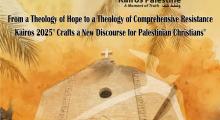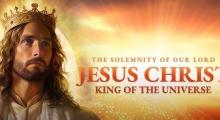Issued by the Catholic Center for Studies and Media - Jordan. Editor-in-chief Fr. Rif'at Bader - موقع أبونا abouna.org
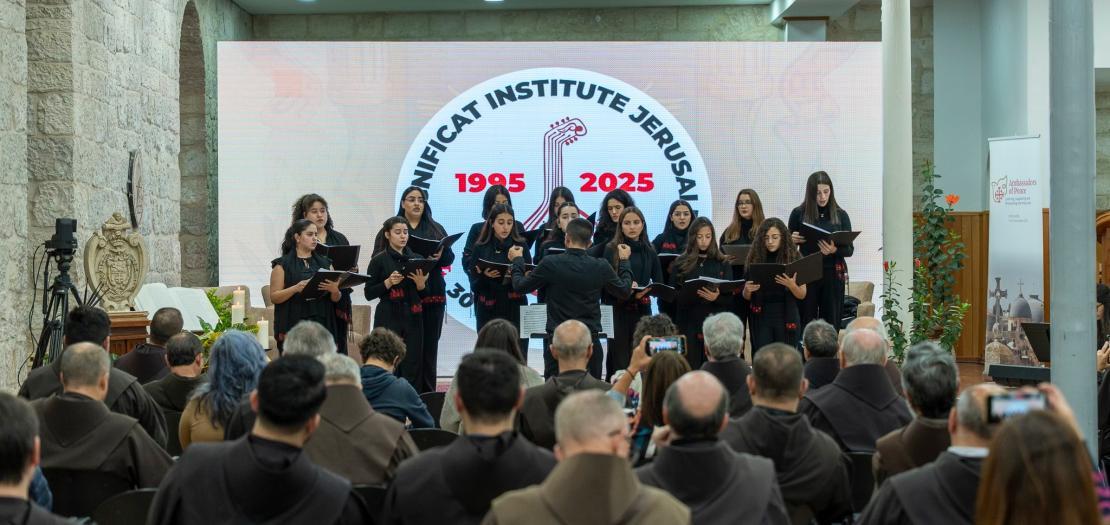
The Congress of the Commissaries of the Holy Land continues, still walking in the footsteps of a simple yet essential verb, to support. Today the Franciscan friars dedicated the day to the community of Bethlehem, encountering its realities, touching its holy stones and, above all, its living stones, men, women and families who courageously preserve the faith in a fragile and wounded context.
Bethlehem appears as a city deeply rooted in Christianity, yet at the same time tested and oppressed, especially in the past two years marked by conflict. And yet, despite the fatigue, a stubborn joy can be felt, a silent strength made of sharing, belonging and witness, being Christians in the place where the Savior was born.
The commissaries’ day was intense. It opened with the celebration at the Shepherds’ Field, in Beit Sahour, in the Croatian chapel. Then, the visit to the Terra Santa College, guided by Fr. George Haddad, and finally the procession to the Grotto of the Nativity. In the afternoon, the visits to local realities, to Hogar Niño Dios, the family home for disabled children, continued along the historic Star Street, the road walked by pilgrims, custos and patriarchs, up to the “Catholic Action” center, the social and family heart of the Christian community.
The celebration at the Shepherds' Field
The commissaries arrived in the morning at the place where, according to the Gospel, the poorest members of society received the announcement of the archangel first, the birth of Jesus.
The celebration, presided over by Fr. Rafael Tayem, parish priest of Bethlehem, took place in the chapel called “Croatian”, so named because it was built with the help of the Commissariat of Croatia and only recently completed, despite the pandemic and conflict.
In the homily, Fr. Rafael invited everyone to rediscover Christmas in its most authentic meaning, the encounter with Emmanuel, God with us, who does not remain distant but draws close to the fears and wounds of today’s families. Like the shepherds, Christians of this land, and pilgrims as well, are called to set out again, allowing themselves to be shaken by the announcement, "Do not be afraid, I bring you great joy".
Not a Christmas of splendor and power, but of poverty and humility, in the grotto there are Mary, Joseph and a fragile Child, who however is the Savior of all, excluding no one.
From Bethlehem each person departs transformed, bringing to their own communities a reflection of that light and hope that arise from knowing that God is truly with us, even in stories marked by war, crisis and loneliness. It is here that Christmas becomes a concrete commitment, being close, becoming “angels of joy”, supporting the local Christian community and preserving communion with the Mother Church of Jerusalem, so that the voice of the angel may be stronger than the noise of weapons.
The Terra Santa College
The visit continued to the Terra Santa College, where Fr. George Haddad presented the school’s activities, its resources and daily challenges, the emigration of families, the lack of qualified teachers and insufficient funds to guarantee the necessary growth of the institution.
Founded in 1598, the college accompanies students from their first entrance up to their diploma and represents a unique institution in Palestine, it is the only school to offer five high school programs, technical, classical, artistic, hospitality and scientific, designed to prepare young people for future challenges.
The goal is to train professional figures necessary for the territory, from the tourism sector, vital for Bethlehem, to specialized technicians, to artists and future teachers. Yet teachers themselves are lacking, because many young people emigrate in search of more dignified salaries.
Some of the younger students wanted to joyfully honor the commissaries visiting, singing and playing several pieces for them. A sign of welcome, of joy in receiving the visit of new faces that have been missing from Bethlehem for so long. The students of the artistic program also wished to proudly show their artistic works, a sign of beauty that resists despite everything.
The procession to the Grotto of the Nativity
The morning concluded with prayer and the visit to the Grotto of the Nativity, the place where the Word visited humankind.
The friars walked in procession along the route from the Church of Saint Catherine, next to the Orthodox basilica that leads to the grotto. It was a moment of silence and recollection, the kiss to the star, the community prayer, the encounter with the place of birth.
There were signs that the commissaries will bring to their communities, with the desire to return soon together with the pilgrims.
The visit to the Hogar Niño Dios
In the afternoon some commissaries visited the family home Hogar Niño Dios, located a few steps from the basilica. Here live 39 children with disabilities, orphans or coming from extremely serious family situations.
The Sisters of the Incarnate Word welcomed them with joy, recalling how much the war and the pandemic weighed, for two years volunteers, pilgrims and donations were missing. And those who suffered the most were precisely the children, left without new faces, without visits, almost forgotten by society.
And yet, in this house the “Child Jesuses” of Bethlehem continue to live, fragile but alive, bearers of the presence of the suffering Christ in the hearts of those who meet them.
A concrete witness of what it means to care for the living stones.
Along Star Street and at the Catholic Action Center
The day continued with a walk along the historic Star Street, the street of the star that leads to the Nativity. Once full of colors, lights and shops, today it appears dim, with many shutters closed.
Guided by Vincenzo Bellomo, the commissaries listened to stories of emigration and return, of Christian workers and of the neighborhood that resists despite everything.
The final stop was the Catholic Action center of Bethlehem, a place where the community gathers, plays, practices sports, grows and prays. Fr. Sandro Tomasevic illustrated the numerous activities, such as the pool, the sports center, the playroom, the outdoor park and spaces for community meetings.
It was precisely in those spaces that the community wanted to play music and dance for the commissaries, Italian music, Arabic music, the dabke, the traditional Palestinian dance. Once again gestures of welcome, of care for others, of showing how in this land all are welcome. Always.
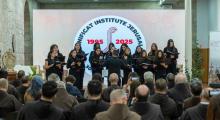 The congress of the Commissaries of the Holy Land dedicates the day to the community of Bethlehem
The congress of the Commissaries of the Holy Land dedicates the day to the community of Bethlehem 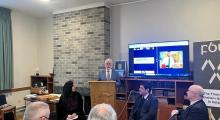 An evening of solidarity, friendship in Dublin strengthens Bethlehem University ties with Ireland
An evening of solidarity, friendship in Dublin strengthens Bethlehem University ties with Ireland 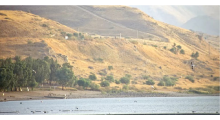 Archaeologists identify the site where Lord Jesus exorcised the legion of demons and the herd of pigs
Archaeologists identify the site where Lord Jesus exorcised the legion of demons and the herd of pigs 

